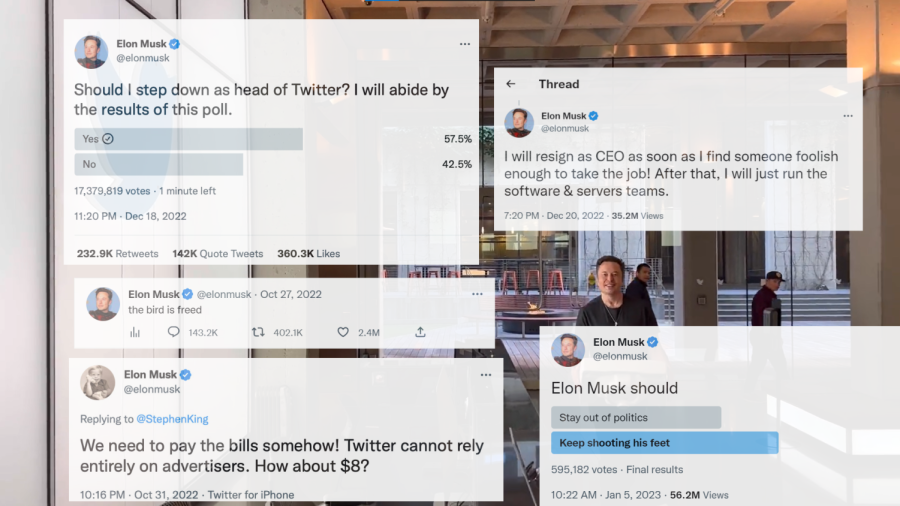It feels like it was only last week that Elon Musk became the majority shareholder and CEO of Twitter. But since then, a lot has happened within the company, after Musk acquired the company as a result of a lost lawsuit.
In an interesting twist, desiring to include the Twitter community more in decisions for how the company should be run, Musk has decided to step down.
His decision came after he made another one of his many polls asking Twitter users about their opinions on Twitter’s management. This time, sensing that he might have already overstayed his welcome, asked the platform if he should step down, stating that he would “abide by the results of the poll.”
After the poll closed, Musk commented on his own tweet, saying, “I will resign as CEO as soon as I find someone foolish enough to take the job! After that, I will just run the software & servers teams.” As of the writing of this article, Musk has not announced a successor to the CEO position.
However, Musk’s comment was not just an attempt to save face by pointing out the difficulty of the job. Twitter has been on a downhill run for the past decade and has recently been faced with job cuts, threats from Musk of bankruptcy and a mass exodus of advertisers from the site.
Although many large media outlets cast skepticism on Elon Musk, questioning his motives for buying Twitter in the first place, some PV students are optimistic about the platform’s future. Junior Ryan Barnes commented on what he thought about Musk’s motivation for buying Twitter. “I do not believe he wanted to acquire Twitter for personal gain. In fact, I believe the opposite. He spent $44 billion on the purchase, and I am unsure if he will make any profit off it. I think he just wanted to implement free speech into the app.”
Barnes holds the belief that Twitter, under Musk’s guidance and the changes he has implemented, will become a catalyst for meaningful and beneficial change. He does not see the platform as one that favors a particular group or ideology, but rather one that embraces diversity of thought and allows for the exchange of different perspectives.
PV sophomore Ameya Taralkar expressed his intrigue about the future leadership of Twitter following Elon Musk’s resignation as CEO. “I’m curious about who will take the helm at Twitter now that Elon Musk has stepped down.” Perhaps a sense of curiosity, like Taralkar’s, is the best approach to navigating the landscape of social media. For much of its history, the industry has been dominated by a select few companies, but perhaps the challenges faced by Twitter could lead to a rejuvenation of the industry and a new era of innovation.
With CEO and majority shareholder Musk, making significant changes to the platform and ultimately deciding to step down as CEO, the past few months at Twitter have been eventful, to say the least. Like Barnes and Taralkar, many believe that Musk’s changes have set the platform on a trajectory towards becoming a more inclusive and tolerant space for diverse perspectives and ideas.
However, it remains to be seen who will take over as CEO and how they will navigate the challenges that Twitter has faced in recent years. With Musk remaining on board and focusing on the software and servers teams, there is hope for a rejuvenation of the platform and the potential for a new era of innovation in the social media industry.









